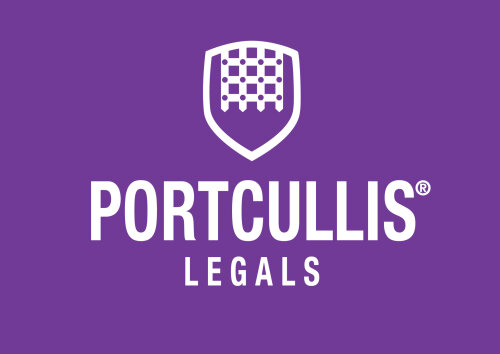Best Guardianship Lawyers in Plymouth
Share your needs with us, get contacted by law firms.
Free. Takes 2 min.
List of the best lawyers in Plymouth, United Kingdom
About Guardianship Law in Plymouth, United Kingdom
Guardianship in Plymouth, United Kingdom, refers to the legal process by which an individual is given authority to make decisions on behalf of another person who is unable to do so themselves. This is most commonly necessary for minors whose parents are unable or unwilling to care for them, or for adults who lack mental capacity. The law seeks to ensure that the vulnerable individual’s best interests are protected. In England and Wales, including Plymouth, guardianship arrangements must follow the principles outlined in legislation such as the Children Act 1989 and the Mental Capacity Act 2005.
Why You May Need a Lawyer
People often seek legal advice regarding guardianship for several reasons. If you are considering becoming a guardian, you will need to understand your responsibilities and how to apply to the court. If you are a parent making provision for your children in case you cannot care for them, a lawyer can help you formalize your wishes. Legal advice may also be required if there is a dispute about who should become a guardian, or if there is concern over a guardian’s actions. For adults lacking mental capacity, lawyers can assist families with applying for deputyship or advising on powers of attorney. In all cases, having a legal specialist ensures compliance with UK law and helps protect all parties involved.
Local Laws Overview
Guardianship laws in Plymouth are governed by national legislation, but local courts such as the Plymouth Family Court handle applications and hearings. Key legal aspects include the eligibility of prospective guardians, the process for appointment, and ongoing duties. For children, anyone with parental responsibility can appoint a guardian in their will or the court may appoint someone if no suitable candidate is proposed. For adults, the Court of Protection can appoint a deputy to manage affairs. All decisions must be made with the individual’s best interests in mind. Guardians and deputies are accountable to the courts and must submit reports or accounts periodically. It is important to understand both national legal standards and local court procedures.
Frequently Asked Questions
What is the difference between guardianship and parental responsibility?
Parental responsibility is the legal term for the rights and duties a parent has for their child. Guardianship typically comes into play when a parent is no longer able to fulfill this role, and another adult is appointed to make decisions on behalf of the child.
Who can become a guardian in Plymouth?
Most adults over the age of 18 can become guardians, provided the court finds them suitable and acting in the best interests of the child or vulnerable adult. There are no specific requirements regarding relation, but suitability is closely scrutinized.
How do I apply for guardianship of a child?
You must apply to the Family Court, often the Plymouth Family Court, and provide detailed information about the child, your relationship to them, and why guardianship is necessary. The court will consider various reports and may hold hearings.
What is deputyship and how does it differ from guardianship?
Deputyship is a legal arrangement for adults who lack mental capacity. Unlike guardianship, which focuses mainly on children, deputyship allows someone to manage an adult’s affairs as ordered by the Court of Protection.
Can I appoint a guardian for my children in my will?
Yes, UK law allows you to nominate a guardian in your will. However, the court will always consider the child’s best interests before formally appointing that person if the need arises.
What powers does a guardian have?
Guardians can make important decisions about the child’s upbringing, including education, health, and welfare. For adults, a deputy’s powers are set out by the court order and can include decisions about healthcare or managing finances.
Can guardianship or deputyship be challenged?
Yes, family members or interested parties can contest the appointment of a guardian or deputy if they believe it is not in the best interests of the person concerned. The court will consider all evidence before making a decision.
What are the responsibilities of a guardian?
Guardians must ensure the wellbeing, education, and proper care of the child or vulnerable adult. They may also need to provide reports to the local authority or court about the person’s welfare.
Do guardians receive financial support?
Guardians of children may receive financial support, such as child benefit or a special guardianship allowance. Financial arrangements for deputies depend on the specific court order and resources of the adult.
How long does guardianship last?
For children, guardianship usually lasts until the child turns 18. For adults, deputyship can be ongoing but may change if the adult regains capacity or circumstances change.
Additional Resources
If you need more information about guardianship in Plymouth, consider consulting:
- Plymouth Family Court, for local applications and hearings - Plymouth City Council Children’s Services, for child welfare advice - The Office of the Public Guardian, for support with deputyship and mental capacity issues - Citizens Advice Plymouth, for general legal guidance - The Law Society, to find solicitors specializing in family or capacity law
Next Steps
If you believe you need legal assistance relating to guardianship, start by gathering all relevant information about your situation. This may include details about the individual requiring guardianship, your own relationship to them, and any documents such as wills or medical reports. Contact a solicitor experienced in family law or capacity law in Plymouth for an initial consultation. Bringing your questions and documents will help ensure you receive accurate advice. If cost is a concern, inquire about legal aid eligibility or seek assistance from local organizations such as Citizens Advice Plymouth. Remember, guardianship is a serious legal responsibility, so professional guidance is essential to protect your rights and the welfare of the person concerned.
Lawzana helps you find the best lawyers and law firms in Plymouth through a curated and pre-screened list of qualified legal professionals. Our platform offers rankings and detailed profiles of attorneys and law firms, allowing you to compare based on practice areas, including Guardianship, experience, and client feedback.
Each profile includes a description of the firm's areas of practice, client reviews, team members and partners, year of establishment, spoken languages, office locations, contact information, social media presence, and any published articles or resources. Most firms on our platform speak English and are experienced in both local and international legal matters.
Get a quote from top-rated law firms in Plymouth, United Kingdom — quickly, securely, and without unnecessary hassle.
Disclaimer:
The information provided on this page is for general informational purposes only and does not constitute legal advice. While we strive to ensure the accuracy and relevance of the content, legal information may change over time, and interpretations of the law can vary. You should always consult with a qualified legal professional for advice specific to your situation.
We disclaim all liability for actions taken or not taken based on the content of this page. If you believe any information is incorrect or outdated, please contact us, and we will review and update it where appropriate.









